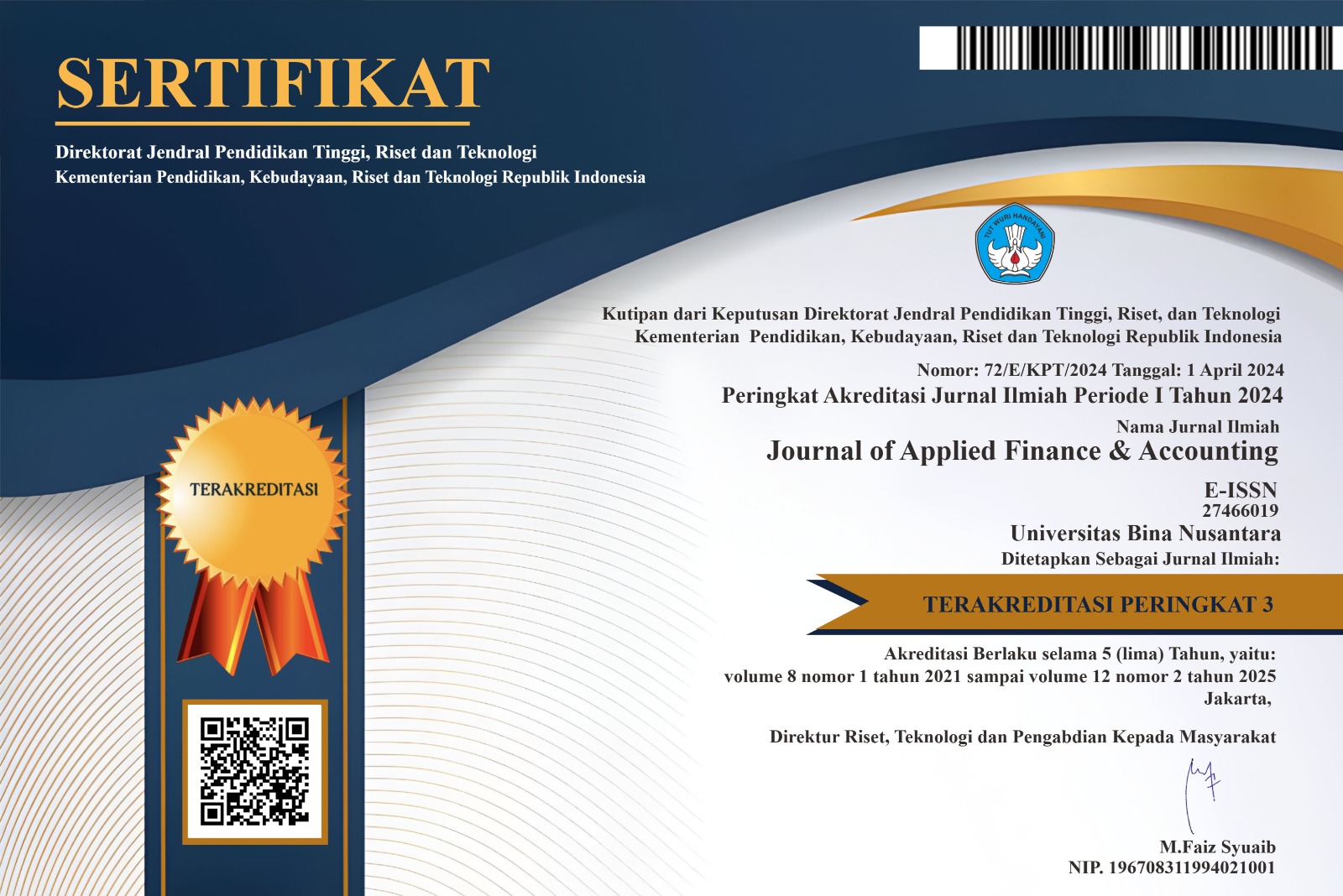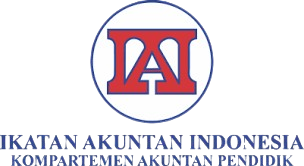ANALISIS PERBANDINGAN ECONOMIC VALUE ADDED (EVA) DAN FINANCIAL VALUE ADDED (FVA) SEBAGAI ALAT UKUR PENILAIAN KINERJA KEUANGAN PADA INDUSTRI PERKEBUNAN DI BURSA EFEK INDONESIA
DOI:
https://doi.org/10.21512/jafa.v3i1.164Keywords:
Economic Value Added (EVA), Financial Value Added (FVA), industrial estates, financial performance.Abstract
Economic Value Added (EVA) and the Financial Value Added (FVA) are the concept of management performance assessment based on the size of the added value which is created by the company during the specified period. EVA measures the economic profit of the company taking into account the cost of capital, whereas FVA earnings measure taking into account the contribution of fixed assets in generating net profits of the company.
The study aims to determine the ratio of Economic Value Added (EVA) and the Financial Value Added (FVA) as a measurement of financial performance assessment on the industrial estates listed in Indonesia Stock Exchange for the period 2004 to 2009. The method used a descriptive analysis method using time series data. The results of this study indicated that companies using EVA to create economic value and have a good financial performance from 2004 until 2009. While using the FVA, the company is also able to create a positive financial value of good financial performance from 2004 until 2009. The results also show that there are significantly differences between the EVA and the FVA for the period 2004 to 2009.
Downloads
Published
Issue
Section
License
Authors who publish with this journal agree to the following terms:
Authors retain copyright and grant the journal right of first publication with the work simultaneously licensed under a Creative Commons Attribution License that allows others to share the work with an acknowledgement of the work's authorship and initial publication in this journal.
Authors are able to enter into separate, additional contractual arrangements for the non-exclusive distribution of the journal's published version of the work (e.g., post it to an institutional repository or publish it in a book), with an acknowledgement of its initial publication in this journal.
Authors are permitted and encouraged to post their work online (e.g., in institutional repositories or on their website) prior to and during the submission process, as it can lead to productive exchanges, as well as earlier and greater citation of published work (See The Effect of Open Access).




